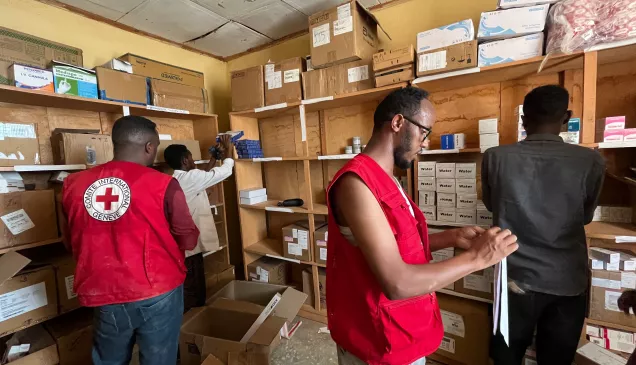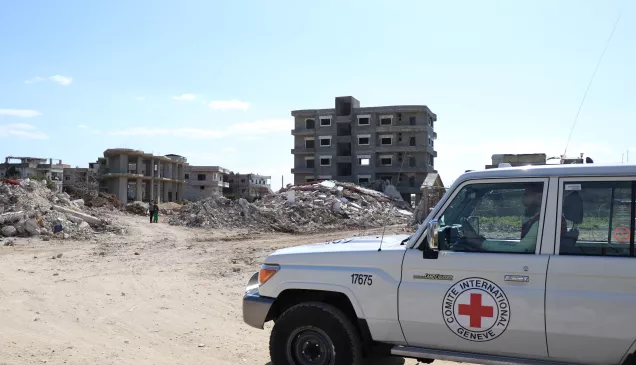Responding to disease outbreaks in the time of COVID-19
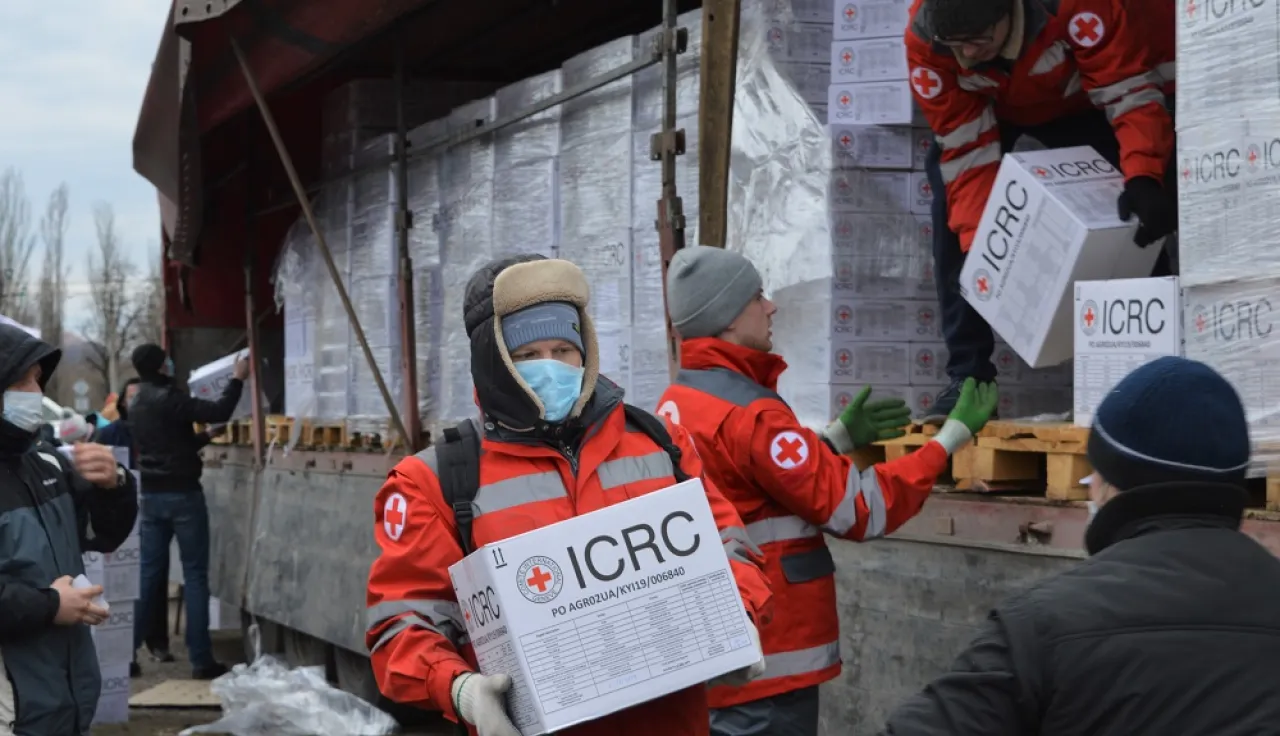
The coronavirus disease (COVID-19) is a dramatic new threat to the entire population of the world. But it does not have to be catastrophic for people already struggling with war and violence.
We, at the ICRC, have deployed our most experienced personnel to avoid the worst-case scenario and save lives. As we write, we are scaling up our resources – funding, medical supplies, equipment and staff – to help as many people as possible.
At the same time, an immediate and concerted response by states and humanitarian organizations is vital.
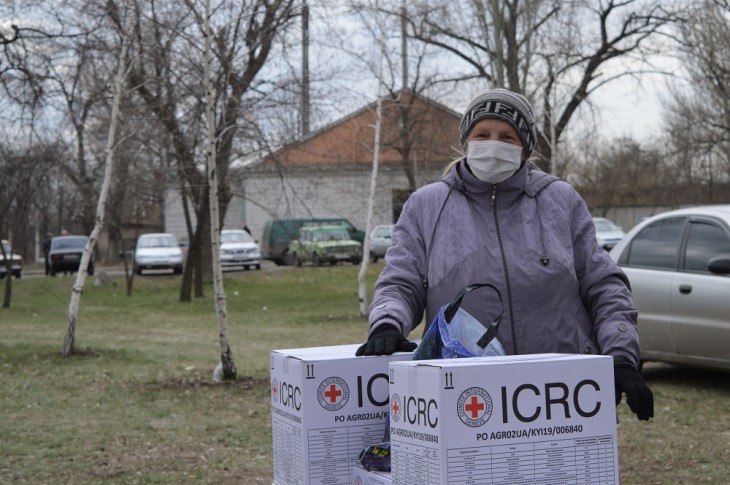
The ICRC in Ukriane continues its work supporting population affected by conflict and threatened by the COVID-19 pandemic. Svitlana KUZNETSOVA/ICRC
Collectively, we have a body of experience in dealing with viral outbreaks, and a global footprint, including in the world's remotest and most vulnerable of places. We can make a real difference.
Since February 2020, the Red Cross and Red Crescent Movement has been working with communities around the world to increase preparedness and resilience. In many countries, in Africa for instance, epidemic preparedness measures that governments, authorities and National Societies have made for existing threats, like Ebola, mean COVID-19 prevention measures are already activated. The sense of urgency now needs to increase.
Here are three examples of disease outbreaks we've helped contain, together with communities and authorities.
What is the ICRC doing to support communities in conflict zones?
The ICRC's unique value in many countries is its access to areas of conflict that other organizations may not have. This allows us to assist in responding to an outbreak in hard to reach war-torn areas.
Working together with the Red Cross and Red Crescent National Societies to support their activities, the ICRC addresses health concerns in a multi-disciplinary manner: water and sanitation teams work to increase access to clean water in dozens of areas affected by crises, including prisons.
Since the COVID-19 outbreak, we have developed an emergency plan to ensure continuity in the most critical hospitals we support around the globe. This means increasing stocks of essential medical supplies and putting in place, or reinforcing, contingency plans and infection prevention and control measures in hospitals that are highly dependent on the ICRC support for their functioning.
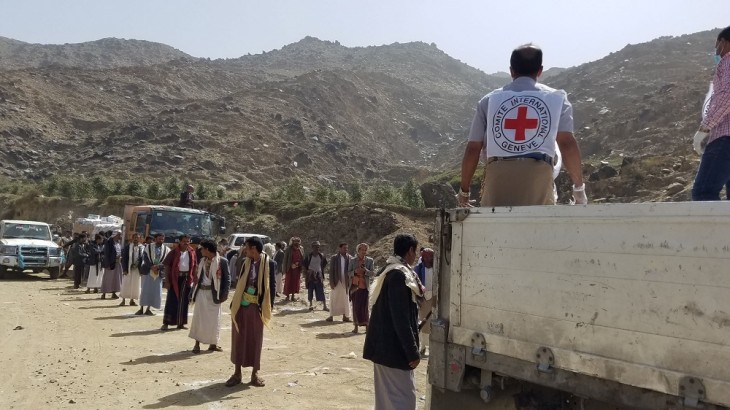
The looming threat of COVID-19 doesn't stop us from helping people in need, but we also make sure we adhere to all the precautionary measures. ICRC
Our support to hospitals in conflict zones in conflict zones includes donating supplies and equipment, financial support and undertaking staff training sessions. We support infrastructure works to expand hospital capacity, ensure a stable water supply and proper waste management, and improve overall medical service delivery. We'll provide advice, guidance and standards to authorities to prevent and control the outbreak.
In many places of detention around the world, the ICRC works together with relevant authorities to strengthen standard practices such as the medical screening of new arrivals and the setting up of prevention measures – such as hand washing stations – for detainees, visitors, guards and delivery personnel. We also support disinfection measures, such as fumigation campaigns and distribute soap and other hygiene and cleaning materials to detainees.


